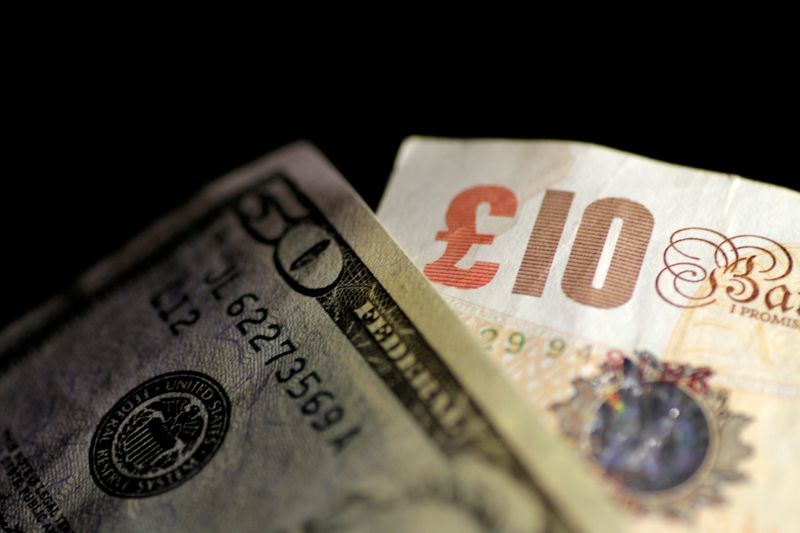By Joice Alves
LONDON (Reuters) -Sterling fell against the dollar on Tuesday after data showing the highest U.S. inflation in 13 years sent the greenback surging to a six-day high.
The U.S. Labor Department said the consumer price index increased 0.9% last month, the largest gain since June 2008, while so-called core CPI surged 4.5% on a year-on-year basis, the largest increase since November 1991.
The data which prompted markets to bring forward their U.S. rate hike expectations weighed on other currencies including the pound which extended earlier losses to touch a session-low of $1.37995 - down 0.6% on the day.
By 1330 GMT it had stabilised at $1.38350.
The currency flatlined against the euro at 85.46 pence.
The pound eased earlier in the day from the two-week highs hit on Monday when the Bank of England scrapped pandemic-era curbs on British banks' dividend payments but warned in its Financial Stability Report (FSR) that some asset prices looked stretched.
The BOE added it was keeping an eye on the housing market and how fast price rises translated into household indebtedness.
Jeremy Stretch, head of G10 FX strategy at CIBC Capital Markets, said sterling had reacted to "the negative references in the BoE FSR press conference".
"Bailey has underlined heightened sensitivity to higher borrowing in weaker parts of the economy in addition to warning regarding potential threats to asset price valuations," he added.
Sterling has been among the top performing G10 currencies this year following Britain's quick vaccination rollout, which encouraged hopes for a quick economic recovery.

But while the government plans to ease COVID-10 restrictions next week, investor confidence has been hit by a surge in COVID-19 Delta variant cases.
"Investors seems to be torn between optimism fuelled by the imminent lifting of all remaining corona restrictions in England and concerns about the spread of the Delta variant," Commerzbank (DE:CBKG) wrote in a note to clients.